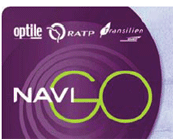Paris leads the way in advanced contactless ticketing using dual interface cards
01 November, 2003
category: Contactless, Library, Transit
Mass transportation in Paris, France is big business. In fact, the Regie Autonome des Transports Parisiens (RATP), Paris’ mass transit authority, is the third largest transport network in the world trailing only Tokyo and New York. The RATP also is a world leader in automated fare collection technology with one of the most advanced networks in the world.
Says Claire Boyer, Marketing Manager for contactless technology provider ASK, “there are now around 2 million cards in use.” That includes both the RATP and the regions railway network, the SNCF (Societe Nationale des Chemins de Fer Francais).
With 11 million inhabitants and the population center of Paris in its boundaries, the Ile-de-France region is the nation’s most highly populated area. It is home to 20% of the country’s jobs, but represents just 2.2% of its surface area. It attracts 60 million tourists each year.
RATP is the region’s leading transport operator, handling 2.6 billion journeys per year. Its network spans 14 metro lines serving 380 stations, one railway, 312 bus lines, and two light rail lines. RATP runs airport links to Paris’ two major airports via Roissybus, Orlybus and the Orlyval shuttle service, and also operates three tourist bus services.
It was little wonder that the antiquated magnetic stripe-based ticketing and fare collection system could not stand up to the rigors of this multi-modal, multi-entity environment. By 1999, counterfeiting and fraud were causing tremendous problems. According to a ’99 study by RATP and SNCF, revenue losses due to fraud and counterfeiting totaled more than 110 million euros a year.
But it was the aging magstripe fare collection system nearing the end of its economic and useable life that forced the change to a contactless system. The change promised fraud reduction, easier-to-manage systems, and increased customer loyalty.
The NAVIGO pass, which was introduced in 2001 (in a three-phase plan that will culminate in 2005) is the magstripe replacement. The NAVIGO card uses dual interface technology, so it can be used in a contact or contactless form. It meets the specifications required by Calypso, an electronic ticketing standard that defines the interface between cards and terminals. The Calypso standard was developed over a 10-year period by transit organizers from five European cities-Paris, Brussels, Lisbon, Konstanz, and Venice.
Five suppliers implemented various aspects of the new ticketing system:
- ASK provides smart cards,
readers and point of sale
terminals; - Ascom Monetel provides ticket validators on the metro and RER;
- Thales eTransactions provides ticket validators for buses;
- Schlumberger provides smart cards and automatic ticket
vending machines; and - Spirtech provides the ticketing application design.
“The NAVIGO card is read by the ISO 14443 reader, the HCR (handheld readers), TEC (reloading terminals), and other specific couplers,” said Ms. Boyer. “The system is a multi-modal transportation network good for bus, train, or light rail.”
The monthly pass, Carte Orange, was launched this year. “It is part of the generalization process of the Ile de France area,” said Ms. Boyer. “The C.ticket, ASK’s contactless paper ticket, will eventually replace all magstripe tickets in the network,” she adds.
RATP is also implementing the paper ticket on Orly Val shuttle with 1.2 million C.tickets before generalization, said an RATP source. The C.ticket solves the issue of occasional or short-term users (like tourists) while providing a full contactless solution for the network.
Since the new system was introduced, rail network access gates have been equipped with at least two contactless validators per control group. By early 2004, the aim is for all networks in the Ile de France region to be equipped.
Most of the benefits of the contactless technology are obvious. For the operator it’s a cost-effective solution that reduces overall system costs. Its dual interface card enables a diversified reloading operation while providing a new look and image for the transport operators. For the customers, it provides an attractive and friendly new device that is quick and reliable with easy access to all transport modes in the Ile de France region. And it has the potential for expansion in areas such as identification, additional payment functions, and loyalty schemes.
In the future, Paris operators may wish to add an e-purse to the cards. “The contactless interface will be added onto the French e-purse Moneo, and combined to the transportation smart card,” said Ms. Boyer.
Parisians have accepted the card enthusiastically, says Ms. Boyer. “They love it as they do not waste time inserting their ticket anymore. They can leave the card in their purse or school bag to validate. It is more convenient, faster, and more secure.”
Founded in 1997, ASK is a leading manufacturer of contactless smart cards, contactless paper tickets and RFID contactless smart paper labels. ASK has already supplied more than 20 million contactless cards and contactless paper tickets for use in more than 25 countries and in 70 towns and cities in Europe, Asia and the USA. Clients besides RATP and SNCF include passenger transport companies in Newark, Toronto, San Francisco, Lisbon, Lyon, Venice, Naples, Rome, Taipei, Nice and Germany’s Rhine-Ruhr region.


